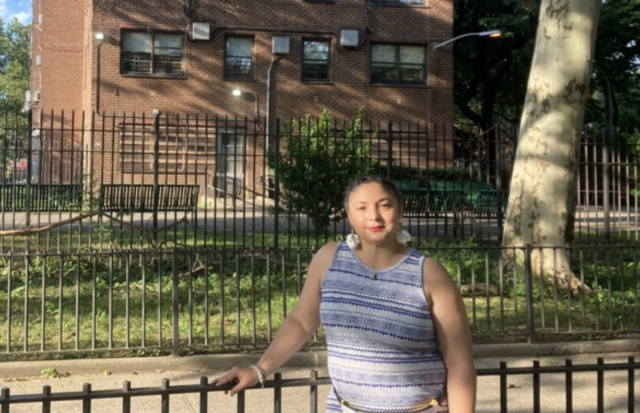Officials supporting a new public housing trust to fund billions in repairs say no, but the law says yes.
[…]
The opposition’s biggest point was the claim that the law did not guarantee that if a NYCHA campus defaulted on the trust, then the city or state would step in to make sure that it did not fall into private hands. Trust supporters denied this would happen. “The trust law prohibits pledging the fee ownership of the properties as collateral,” NYCHA said in a statement to City & State. “It is further codified in the trust law that low-income rights, protections and rents must remain in place on these properties. Under no scenario can the buildings be sold, become market rate or have the resident rights or protections changed.”
But Paula Segal, a lawyer for the tenant group Residents to Preserve Public Housing that’s opposed to the trust, said that “‘fee ownership’ are legal words that mean TOTAL ownership. The trust will never have fee ownership. It will only have a leasehold interest but a leasehold interest is a property right that can be pledged – such as how the Chrysler Building is owned.”
She said the law would have to be changed from “the fee ownership of” to “any ownership interest in.” It would also, she added, have to remove an entire section of the bill that said the trust will be able to pledge an “interest in … housing facilities as a remedy to … default” – and also remove language that neither the city or the state will have the obligation to cure that default.
There is disagreement over the likelihood that the trust would ever default. “The chance is remote that Section 8 would stop paying out, or that the state or city would not step in to refinance these projects where so many people live,” Bloom said. “Would they really allow a public agency to default? Even when a lot of these big projects were faced with default in the 1970s, the state stepped in.”
Yet if that’s true, “Then why didn’t the city or state guarantee stepping in, in the event of a default?” asked Marquis Jenkins, a longtime resident of NYCHA’s Bracetti Plaza in the East Village and a founding member of Residents to Preserve Public Housing.
The other concern among opponents was that NYCHA, which should issue detailed guidelines for campus-by-campus opt-in voting in the fall, won’t set the quorum high enough to be truly reflective of a given site. Jenkins thought it should be 80%, and that the vote should be preceded by each campus conducting a fiscal needs assessment that looks at the current repair budget against the shortfall – and against how much the trust wants to borrow.
“If there’s only $100 million available for a development,” he said, “then residents should be armed with choices, such as, ‘We want to prioritize the roofs and deal with the grounds later.’” Yet, he said he was skeptical that NYCHA would be fully transparent.
[….]
Read the full story here.

